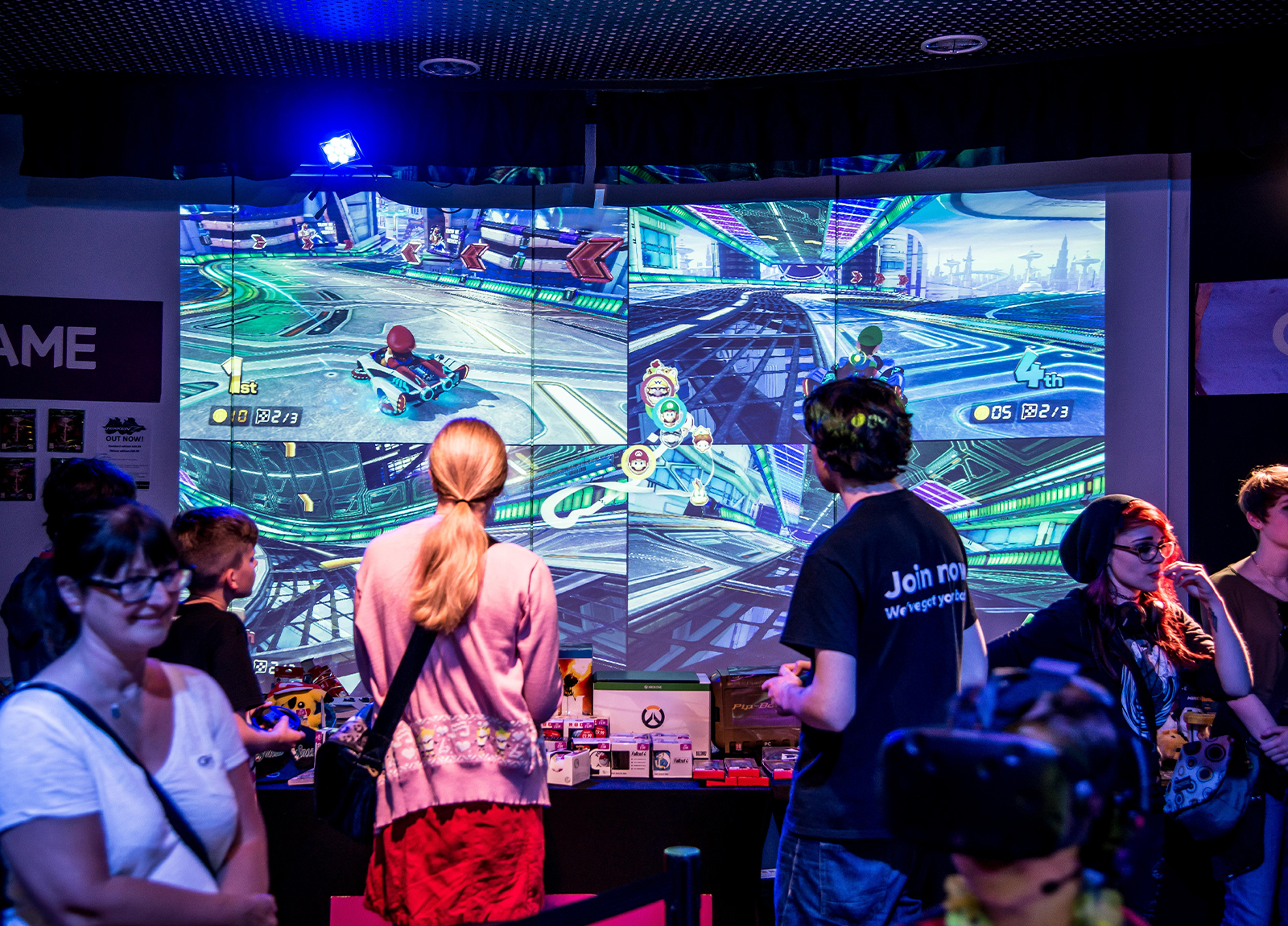
Esports BA (Hons)
Immerse yourself in Esports culture and be at the forefront of a rapidly growing multi-million industry.
-
Course Duration
3 Years
-
Course Options
Diploma Year
-
Typical Offer
104-120 UCAS Tariff Points
- How to Apply Request a prospectus
-
Annual Fees
- Home (full-time) £9,535
- Overseas (full-time) £18,860
-
Course Start
September 2026
Esports at Norwich is designed to provide you with a comprehensive understanding of the rapidly growing world of competitive gaming. This course bridges the gap between passion for gaming and professional opportunities, preparing you to engage with and develop a critical insight into issues facing the multi-million-pound global esports industry; combining theory, practical experience, and industry engagement, the course equips you with the skills, knowledge, and networks required to excel in an emerging global industry.
Whilst playing and understanding games is a core component to the learning, this course goes beyond that by critically and creatively exploring the wider structure and units of international Esports, such as event management and production, broadcasting, marketing and business, coaching, team and community management, game design and game studies. By immersing you in a range of disciplines and real-world scenarios, the course aims to develop a new generation of skilled professionals ready to lead the future of sports.
Why study with us
-
Industry-focused curriculum
Our cutting-edge Esports degree curriculum is designed in collaboration with industry leaders, ensuring that the learning experience is relevant, practical, and aligned with current and future trends in the rapidly growing sector of international Esports.
-
Real-world experience
You’ll gain practical experience through live Esports events, partnerships with local and national organisations, and charity livestreams, giving you the opportunity to develop your portfolio and build a network of industry connections.
-
Collaborative creative environment
Students at Norwich University immerse themselves in a vibrant creative community with opportunities to collaborate on a range of cutting-edge projects with students on Games Art and Design, Animation, Moving Image and Sound, Business Management and Psychology.
-
State of the art facilities
Experience hands-on learning in our dedicated Esports labs equipped with a professional setup for live streaming setups, competitive gaming, and the latest broadcasting technology.
Course Details
Year 1
Core Units
Creative Learning (40 credits)
Your first unit pivots around playing and introduces concepts of health, well-being, nutrition, skills, strategies, and analysis through the lens of playing competitive games. This unit is also designed to introduce you to the world and culture of esports. The focus is on understanding the fundamentals of esports games and genres, dissecting professional playstyles, and reflecting on personal gameplay. Students will analyse games from multiple perspectives—player, spectator, and designer—and investigate esports athletes’ physical and mental demands through rules, gameplay analysis, strategy, tournaments and game types.
40 credits
Explore and Experiment (80 credits)
This unit introduces the construct of The Player to shift students’ mindsets from passive gamers to critically engaged participants and content creators. Coaching and player management are provided context through course-led esports tournaments, composed of student teams, to provide the opportunity for each to act as player, coach and manager. Psychology has a big influence, and key concepts, including focus, determination, emotion, stress, etc., are unpacked throughout the unit to provide the foundation for future learning. Delivery in this unit is framed around collective understanding and experience of esports as an event to introduce marketing and business, events management, broadcasting, and video production. Critical studies are woven throughout the course to complement and inform all aspects of the student learning journey.
80 credits
Core Projects
Wayfinding Week
The first week of each academic year is called Wayfinding week. It’s an opportunity get your bearings, establish new connections and, after your first year at Norwich, re-establish old ones. Your course team will talk you through the year ahead and explain the expectations for the year. We’ll help you navigate new encounters and identify areas to focus on as you progress through your course.
Make it Manifest(o)
An important element of Wayfinding Week is taking part in our annual ‘Make it Manifest(o)’ project. Your course team will introduce the project in which we’ll ask you to consider your hopes and vision of the year ahead at Norwich and work with students in other year groups to bring your ideas to life. The project culminates in a celebratory display of work across the campus. The project will help you to develop your critical creativity through different approaches, concepts, and mediums. You’ll encounter diverse perspectives and build friendships and networks within our university community.
Interchange Week
Interchange weeks are opportunities to step away from your disciplinary studies and engage in projects, workshops, visits and talks that extend your knowledge and understanding of the world. Whether you learn a new skill or take part in a global challenge project with students from other courses, you will come away with new insights to take back to your course. Interchange is part of the schedule for all Norwich students with sessions held across and beyond the campus led by university staff, visiting lecturers and students.
Year 2
Core Units
Global Contexts (80 credits)
This unit provides the opportunity for students to transition from participant to organiser through The Event. Students will learn the intricacies of planning and executing an esports event, from local tournaments to large-scale national and international competitions, covering all aspects of the event, including event management, marketing, broadcasting, and audience engagement. Working in groups, students will take on different roles during each event—such as players and coaches, events organisers and analysts, and broadcasters and producers—to simulate a professional esports environment. This process will be explored through multiple cycles, culminating in a student-run live event. Through hands-on workshops and technical sessions, students will build an understanding of a broad range of areas, including health and safety, use of broadcast equipment, social media, community management, live streaming, and shoutcasting.
80 credits
Collaboration (40 credits)
This unit encourages students to Diversify their skills and explore the importance of teamwork and collaboration within broader creative industries, applying their unique skills to diverse disciplines. Students will develop a critical understanding of contemporary issues arising within the esports industry through discussion and lectures. Through project work, students will rapidly develop their skills by applying their learning to one of three new contexts: broadcast and production within moving image and sound, brand identity and digital marketing within games, and events management within business management. The goal is to foster collaboration across disciplines, developing a holistic understanding of how skills developed within an esports context are transferable across creative industries.
40 credits
Core Projects
Wayfinding Week
The first week of each academic year is called Wayfinding week. It’s an opportunity get your bearings, establish new connections and, after your first year at Norwich, re-establish old ones. Your course team will talk you through the year ahead and explain the expectations for the year. We’ll help you navigate new encounters and identify areas to focus on as you progress through your course.
Make it Manifest(o)
An important element of Wayfinding Week is taking part in our annual ‘Make it Manifest(o)’ project. Your course team will introduce the project in which we’ll ask you to consider your hopes and vision of the year ahead at Norwich and work with students in other year groups to bring your ideas to life. The project culminates in a celebratory display of work across the campus. The project will help you to develop your critical creativity through different approaches, concepts, and mediums. You’ll encounter diverse perspectives and build friendships and networks within our university community.
Interchange Week
Interchange weeks are opportunities to step away from your disciplinary studies and engage in projects, workshops, visits and talks that extend your knowledge and understanding of the world. Whether you learn a new skill or take part in a global challenge project with students from other courses, you will come away with new insights to take back to your course. Interchange is part of the schedule for all Norwich students with sessions held across and beyond the campus led by university staff, visiting lecturers and students.
Diploma Year (optional)
Level 5 Diploma (120 credits)
Students have the opportunity to spend a year after the second of their degree (or the third year if studying for a degree with an Integrated Foundation Year) enhancing their employability options through a Level 5 Diploma. They can choose from courses designed to provide:
- opportunities to gain industry insight, developing employability skills through a series of supported experiences, expanding professional networks and building confidence in the workplace, or
- an introduction to creative computing, building an understanding of how coding skills can be used to advance and complement creative practice.
Final Year
Core Units
Research and Preparation (40 credits)
This is the first and shorter of the two units that make up your final year of undergraduate study. You will utilise the skills you have developed in event organisation, broadcasting, and business management and apply them to this new context, demonstrating the impact esports can have in raising awareness of global issues. Students will design the branding, manage the livestream production, and engage an audience to raise awareness for their chosen cause. You will also produce a research report to pursue specialist interests and enhance their knowledge of the esports sector, expanding on the research ideas developed in your second year. By the end of the unit, you should feel well prepared to work independently on your final project and have a clear trajectory towards launching your professional career as a graduate of Norwich.
40 credits
Resolution and Career Preparation (80 credits)
Your final unit allows you to research, conceptualise, and create a self-initiated final-year project(s), building on the skills, knowledge, and understanding you have gathered throughout your course that reflects your chosen career trajectory. Students will have a strong degree of autonomy over their project topic and the format they wish to use. Through detailed research and critical analysis, you will establish why your chosen topic matters and how it contributes to current conversations in your field. By the end of this project, you should have a well-defined proposal that reflects your artistic and academic journey and positions you to make a meaningful contribution to your chosen field.
80 credits
Core Projects
Wayfinding Week
The first week of each academic year is called Wayfinding week. It’s an opportunity get your bearings, establish new connections and, after your first year at Norwich, re-establish old ones. Your course team will talk you through the year ahead and explain the expectations for the year. We’ll help you navigate new encounters and identify areas to focus on as you progress through your course.
Make it Manifest(o)
An important element of Wayfinding Week is taking part in our annual ‘Make it Manifest(o)’ project. Your course team will introduce the project in which we’ll ask you to consider your hopes and vision of the year ahead at Norwich and work with students in other year groups to bring your ideas to life. The project culminates in a celebratory display of work across the campus. The project will help you to develop your critical creativity through different approaches, concepts, and mediums. You’ll encounter diverse perspectives and build friendships and networks within our university community.
Interchange Week
Interchange weeks are opportunities to step away from your disciplinary studies and engage in projects, workshops, visits and talks that extend your knowledge and understanding of the world. Whether you learn a new skill or take part in a global challenge project with students from other courses, you will come away with new insights to take back to your course. Interchange is part of the schedule for all Norwich students with sessions held across and beyond the campus led by university staff, visiting lecturers and students.
Download course specifications
Learning and teaching
This course is taught through a mixture of learning and teaching methods including:
-
Group briefings
-
Academic tutorials
-
Group tutorials
-
Workshops
-
Critiques (crits)
-
Seminars
-
Lectures
Assessment
Assessment for this course is entirely coursework-based, meaning there are no exams. Your progress will be evaluated through the projects and assignments you complete for each unit. Throughout the year, you’ll receive ongoing feedback to help you refine your work and develop your skills. To support your learning and ensure you achieve the course outcomes, we use a variety of assessment methods, including:
- Finished pieces of work
- Presentations
- Written work
- Your research
- A reflective journal
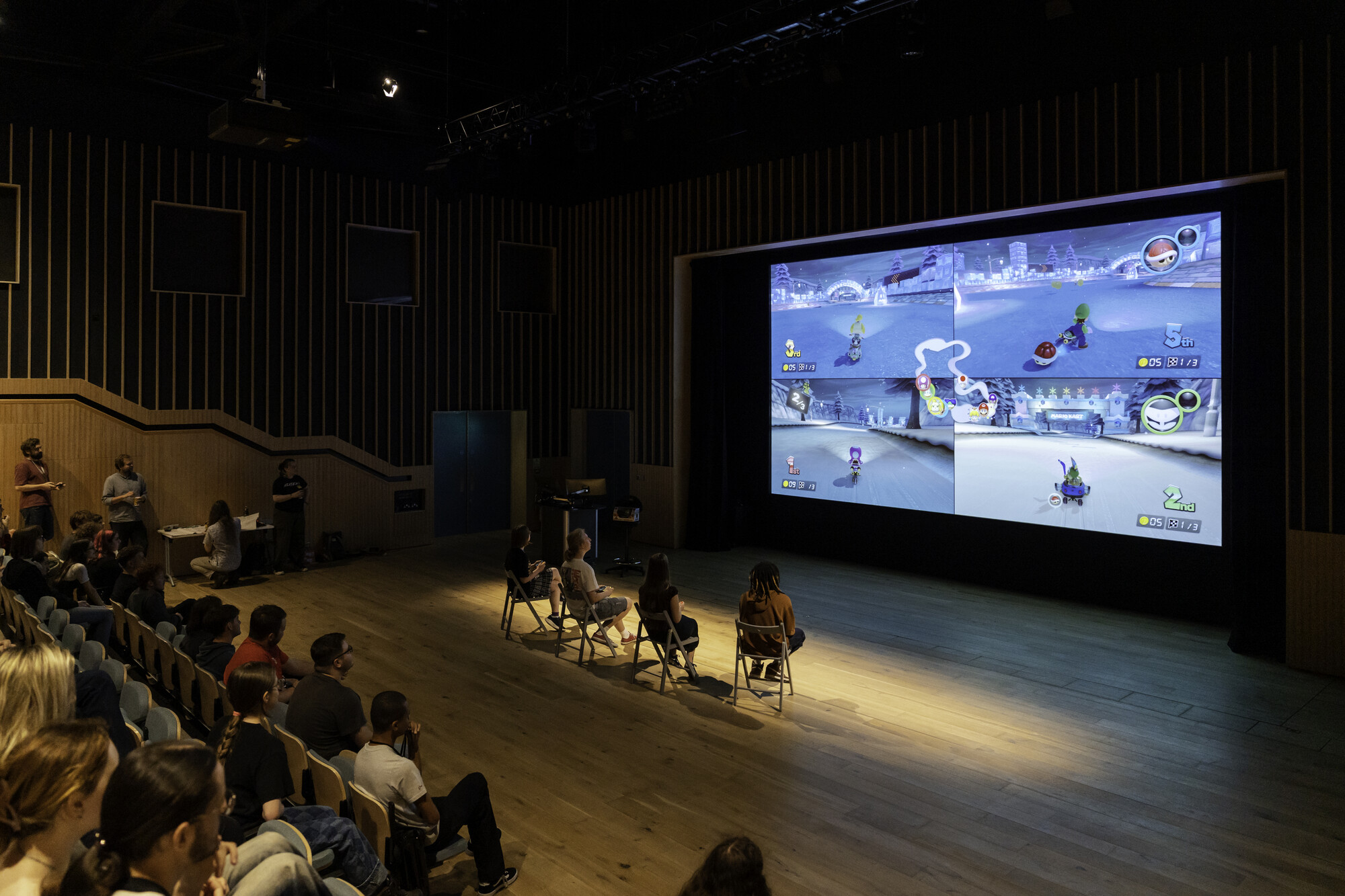
Typical career paths
Our Esports degree will prepare you for a career in a billion-dollar industry that is rapidly growing. Students graduating from the Esports course will possess a diverse skill set, including strategic thinking, critical analysis, and effective communication—both on-screen and behind the scenes. There is a demand for a variety of roles within the industry varying from recruitment, event management, game development and production techniques.
- Esports coach/analyst
- Content creator
- PR or marketing executive
- Community or social media manager
- Broadcast or production crew
- Event manager
- Agent
- Organisation owner or manager
- Esports entrepreneur
“92% of our graduates are in employment or further education within six months of graduating”
Graduate Outcomes 2021
Entry requirements
Home
Norwich University of the Arts welcomes applicants of all ages from all backgrounds.
If the qualification that you are studying is not shown, do not worry as we are able to accept other pre-entry qualifications as well as combinations of different qualifications.
A/AS Levels (GCE)
GCE A/AS Levels 3 A-level qualifications at grades BCC (104 UCAS Tariff points) or above. Where candidates are not taking 3 A-levels, Norwich University of the Arts will consider combinations of A-level/AS-level and other Level 3 qualifications.
BTEC Extended Diploma (QCF or RQF)
Distinction, Merit, Merit in an art, design or media related subject
BTEC Diploma (QCF or RQF)
Distinction*, Distinction* in an art, design or media related subject
T Levels
A T Level in any subject with overall grade A* to C (Pass)
UAL Extended Diploma
Merit
UAL Level 3 Foundation Diploma in Art and Design
Pass
UAL Level 4 Foundation Diploma in Art and Design
Pass
Foundation Diploma in Art and Design
Pass
Access to Higher Education Diploma (Art and Design)
Pass
International Baccalaureate Diploma
A minimum of 26 points
Overseas
We accept qualifications from all over the world.
To find our entry requirements from a specific country, please check our dedicated international pages.
English language qualifications
Most international students are required to hold an English language qualification. Applicants are required to have a minimum UKVI approved IELTS exam score of 6.0 overall, with a minimum of 5.5 in each section. Equivalent English language qualifications are acceptable such as, IB English language syllabus A or B/English Literature (Grade 4).
We also accept some alternative English qualifications. Learn more about our English entry requirements.
You can email us on international@norwichuni.ac.uk if you’d like to discuss your application individually.
Fees and funding
Home
Tuition fees for the 2025/26 academic year
- BA course (three year): £9,535 per year
- Level 5 Diploma Year (optional): £9,535 year
The level of fee that you will be asked to pay depends on whether you’re classed as a UK (home) or international student. Check your fee status.
Fees for subsequent years
Tuition fees may increase in subsequent years in line with inflation, subject to government regulations. The inflation rate used is expected to be the Retail Price Index excluding mortgage payments (RPIX). We would confirm this in advance to you of each academic year.
Find our more about fees and funding
Funding your study
Depending on your circumstances, you may qualify for a bursary, scholarship or loan to help fund your study and enhance your learning experience.
Additional Costs
Your course fees cover the cost of studies, and include loads of benefits, such as the use of our library, support from our expert employability team, access to workshops and free use of the IT equipment across our campuses. There are also other costs which you may need to consider.
International
Tuition fees that for the 2025/26 academic year:
- BA course (three year): £18,500
- level 5 Diploma year (optional): £18,500
The level of fee that you will be asked to pay depends on whether you’re classed as a UK (home) or international student. Check your fee status.
Fees for subsequent years
For Overseas students starting in 2025 inflation will be applied to your fees in later years. We will confirm this in advance to you of each academic year, and we will limit the increase to no more than the Office for Students’ recommended inflationary measure.
Find our more about fees and funding
Funding your study
Please take a look at our International students page for information about fees, scholarships for international students, visas and much more.
Additional Costs
Your course fees cover the cost of studies, and include loads of benefits, such as the use of our library, support from our expert employability team, access to workshops and free use of the IT equipment across our campuses. There are also other costs which you may need to consider.
How to apply
Home
All applications for undergraduate courses will need to be made via the Universities and Colleges Admissions Service (UCAS).
You’ll need our university UCAS code (N39) as well as your course code which you’ll find on your course page.
When you register with UCAS you will need include your previous and current qualifications information, personal statement, and reference.
Once we receive your application form through UCAS, we will email confirmation that we have received it and will give you access and instructions for logging into the applicant portal. Our decision will be communicated via UCAS.
Applying for an undergraduate degreeInternational
Full-time Undergraduate International applicants can either apply via UCAS or directly by completing the online application form below or emailing the downloadable form to ioadmissions@norwichuni.ac.uk
Online Application Form (opens in a new window)For further support for international applicants applying for an undergraduate degree view our international pages.

Latest news
-
 BA Business Management •
BA Business Management •Dean of Creative Education Awarded Prestigious Principal Fellowship from Advance HE
The University is delighted to announce that Hilary Carlisle, Dean of Creative Education and Professor of Design, has been awarded Principal Fellowship of the Higher Education Academy (PFHEA) by Advance HE -
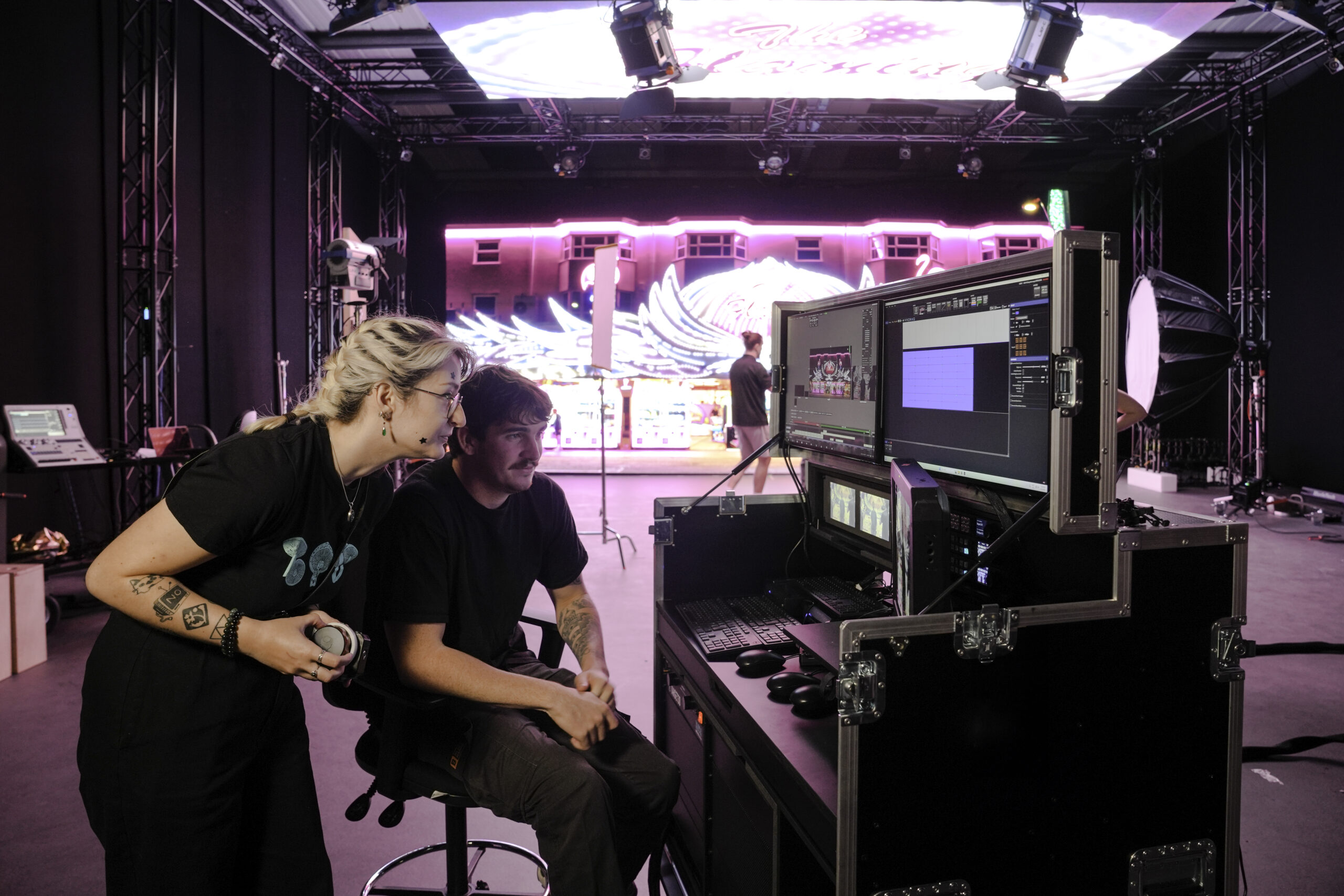 BA Degree •
BA Degree •Norwich University of the Arts to Host ELIA Academy 2027
Norwich University of the Arts is delighted to announce that it has been selected as the host institution for the ELIA Academy 2027. -
 BA Business Management •
BA Business Management •In conversation with Norwich’s newest lecturers in Marketing and Business Management
We joined Norwich's newest lecturers, Stephen Balmer-Walters and Laurie McAllister, to find out more about the University's Marketing and Business Management courses. -
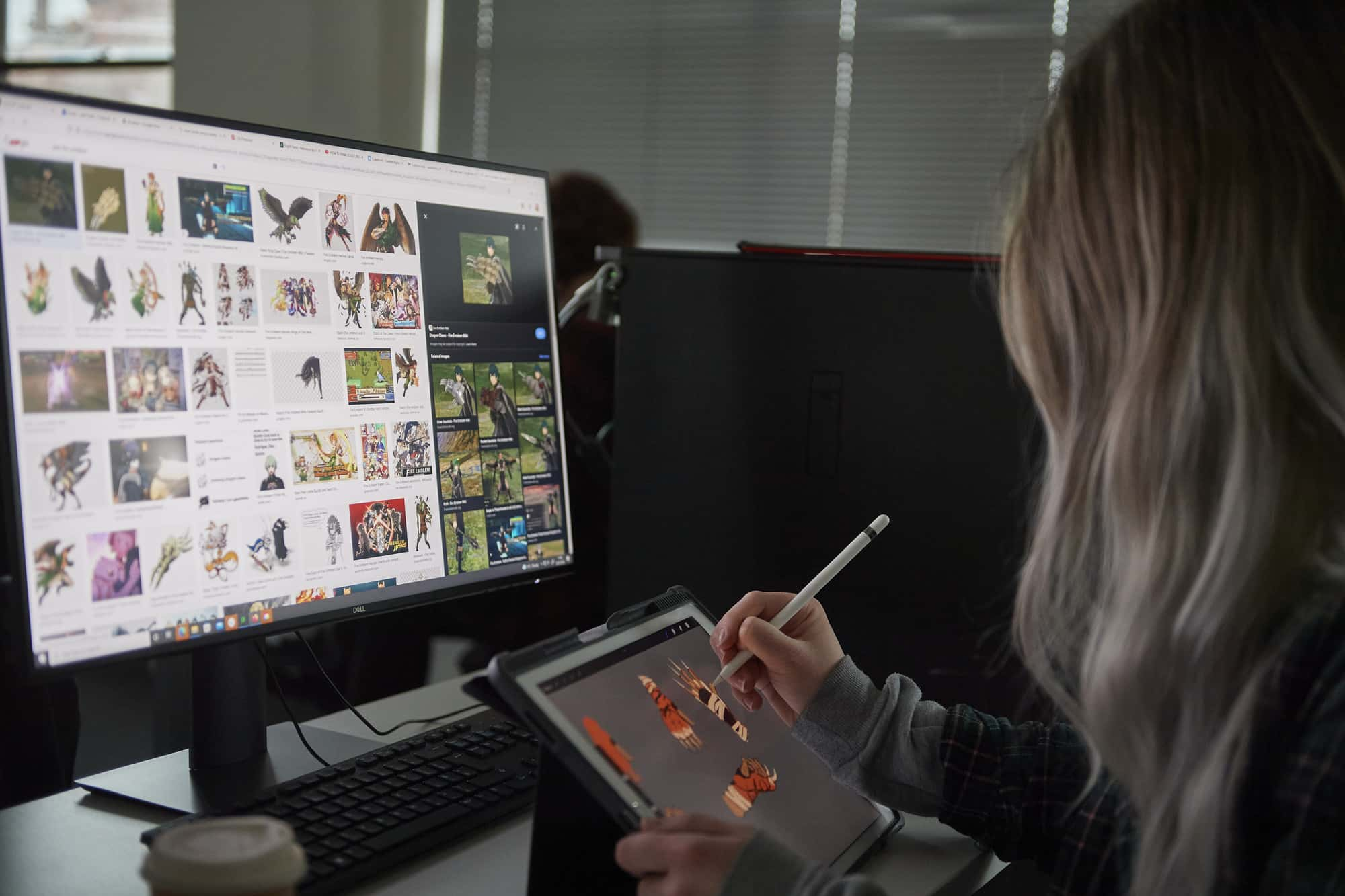 BA Games Art and Design •
BA Games Art and Design •East of England set to become UK’s next Games Cluster, says landmark report
A major new report is calling for the creation of a Games Cluster for the East of England — positioning the region as a national leader in creative technology and immersive media. -
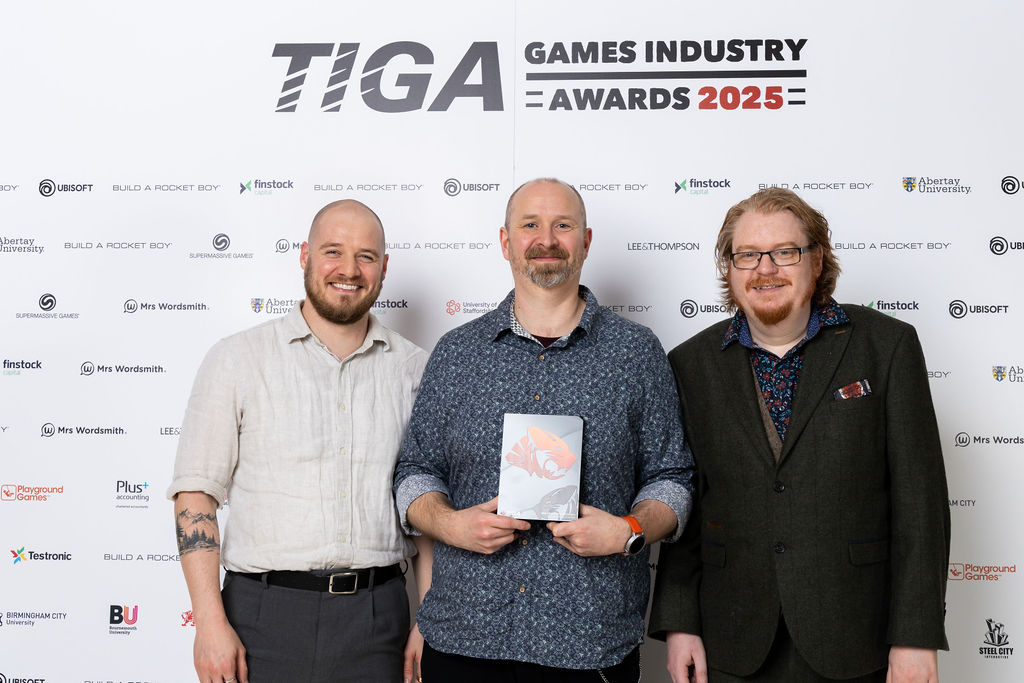 BA Games Art and Design •
BA Games Art and Design •Norwich awarded Best Education Initiative at the TIGA UK Games Industry Awards
TIGA, who represent the UK video games industry, have recognised the University’s commitment to graduate success and industry-focused learning in their 2025 awards. -
 BA Animation •
BA Animation •Cutting edge Sony Virtual Production Studio puts Norwich on the map for the future of film and gaming
Norwich University of the Arts and Sony open new landmark facility for students, creators and the community. -
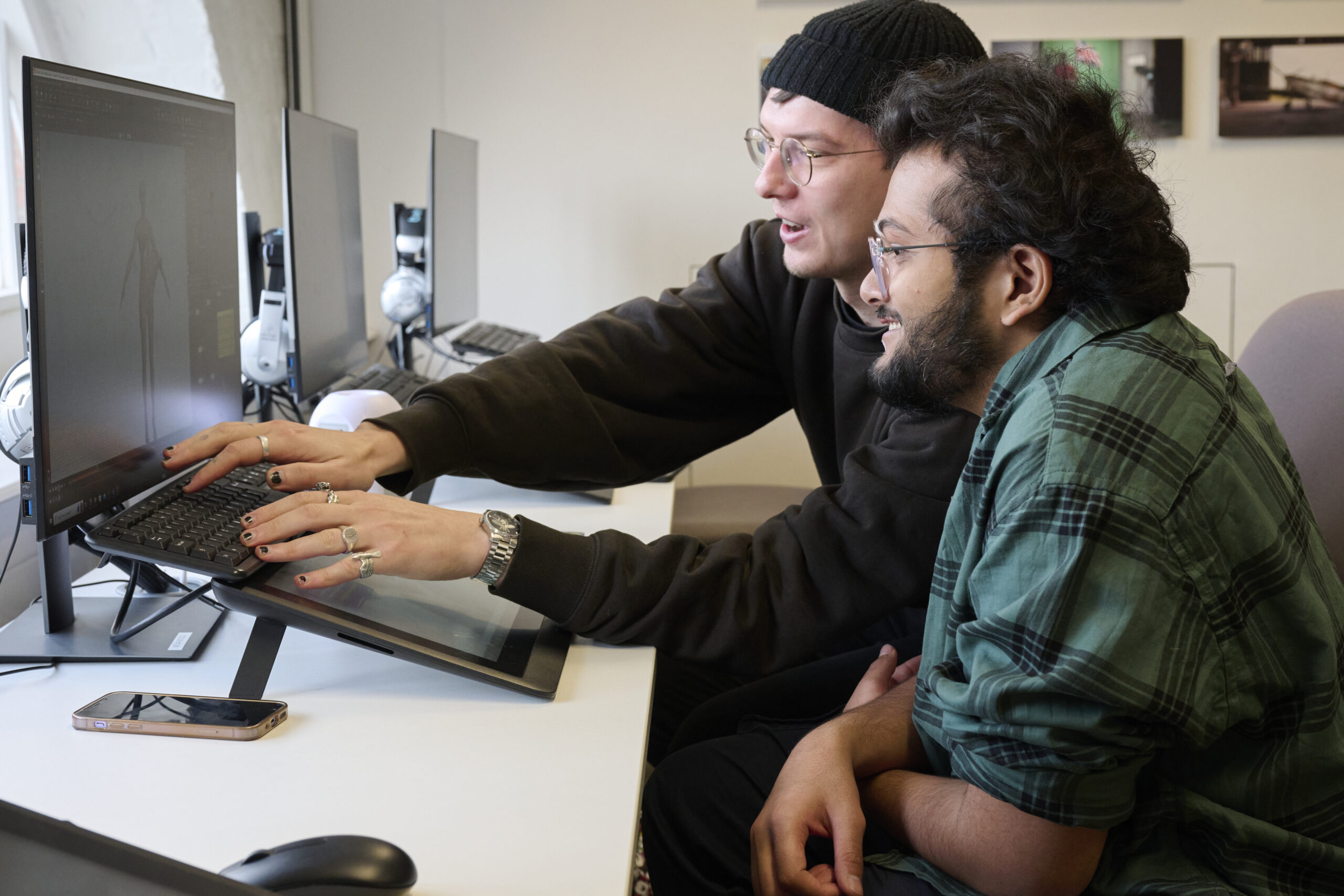 BA Animation •
BA Animation •Norwich named top UK university for production excellence in visual effects
The University has been placed in three categories in the 2025 Rookies Global School Rankings, including the top five for Production Excellence – Visual Effects. -
 BA Photography •
BA Photography •Entries open for Norwich's 2026 Beyond the Frame photography competition
Entries are now open for our annual photography competition, open to students aged 11 to 19 around the world. -
 BSc Degree •
BSc Degree •Norwich University welcomes new academics to its Psychology and Computer Science courses
Lyndsey Wallace joins the University as Senior Lecturer for BSc (Hons) Psychology, with Jawwad Chattha joining as Course Leader for BSc (Hons) Computer Science. -
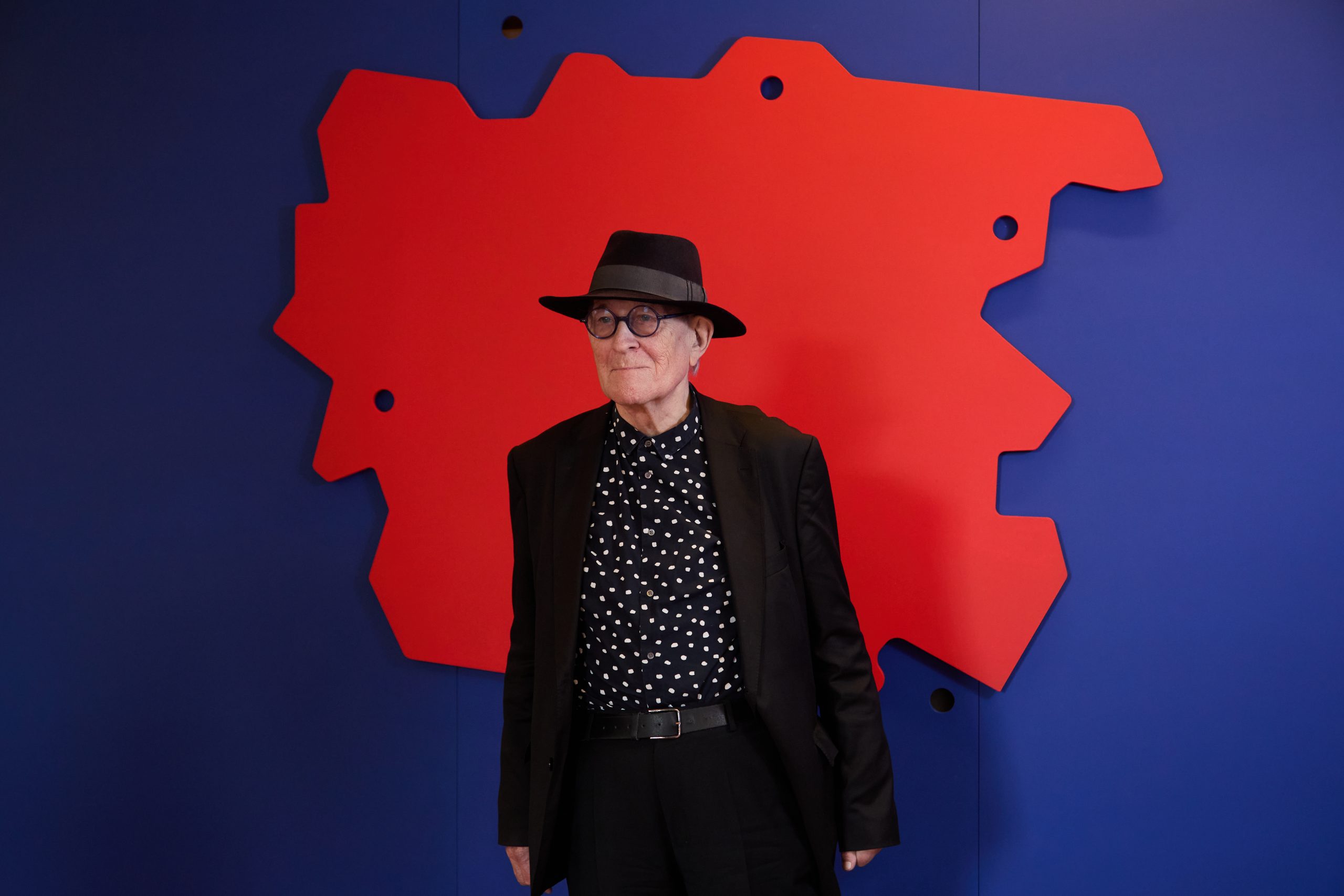 BA Architecture •
BA Architecture •Norwich University of the Arts presents the Peter Cook: Wonder Hub
Norwich University has launched the Peter Cook: Wonder Hub, a vibrant and interactive space for thinking, making, showcasing and debating the creative arts. -
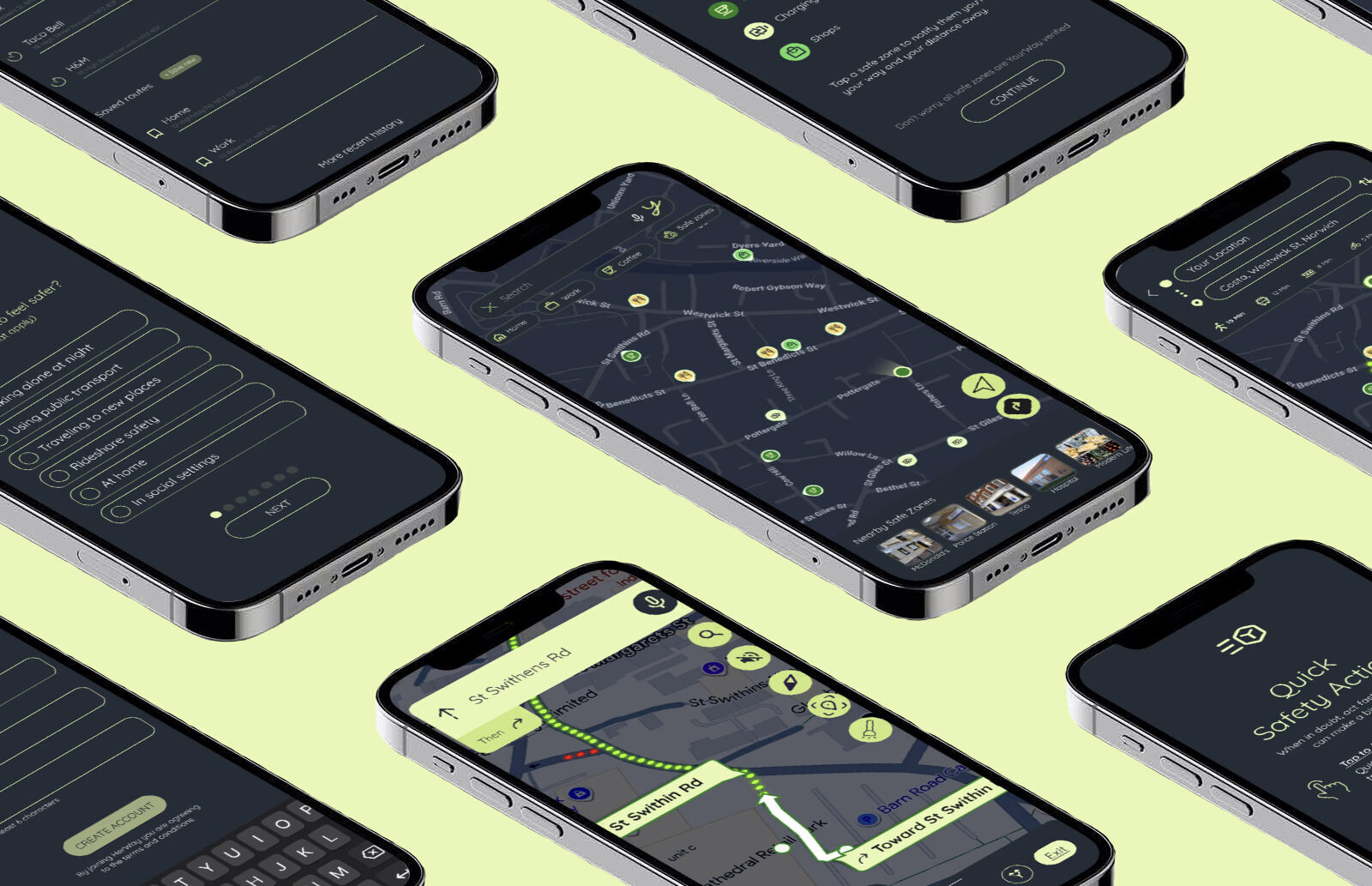 BA Graphic Communication •
BA Graphic Communication •Norwich students celebrate success at 2025 Creative Conscience Awards
Students from Norwich University of the Arts have been recognised across categories in this year’s awards, which showcase work focusing on social or environmental impact -
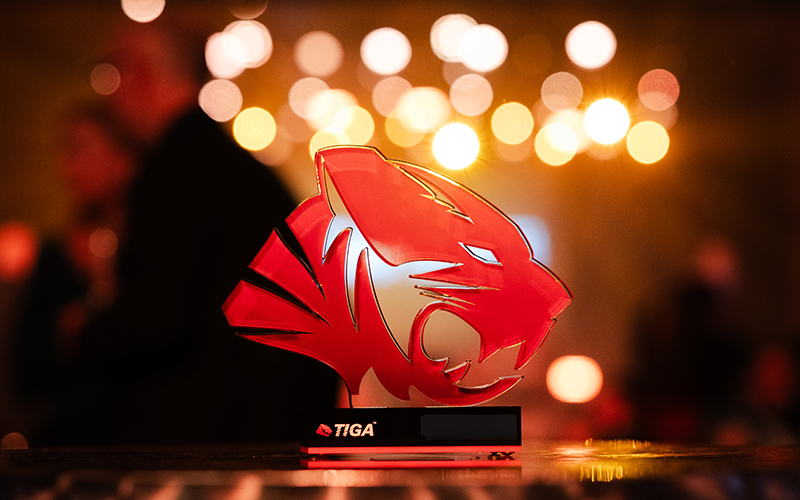 BA Games Art and Design •
BA Games Art and Design •Norwich graduates recognised at TIGA UK Games Education Awards
Charlie O'Shea, BA (Hons) Games Art and Design has been named 'Outstanding TIGA Graduate of the Year: Designer' -
 BA Film and Moving Image Production •
BA Film and Moving Image Production •Dear future international students – Diya Vaya, BA (Hons) Film and Moving Image Production
Diya writes about the experience of moving to Norwich from Nairobi, and her advice to future international students. -
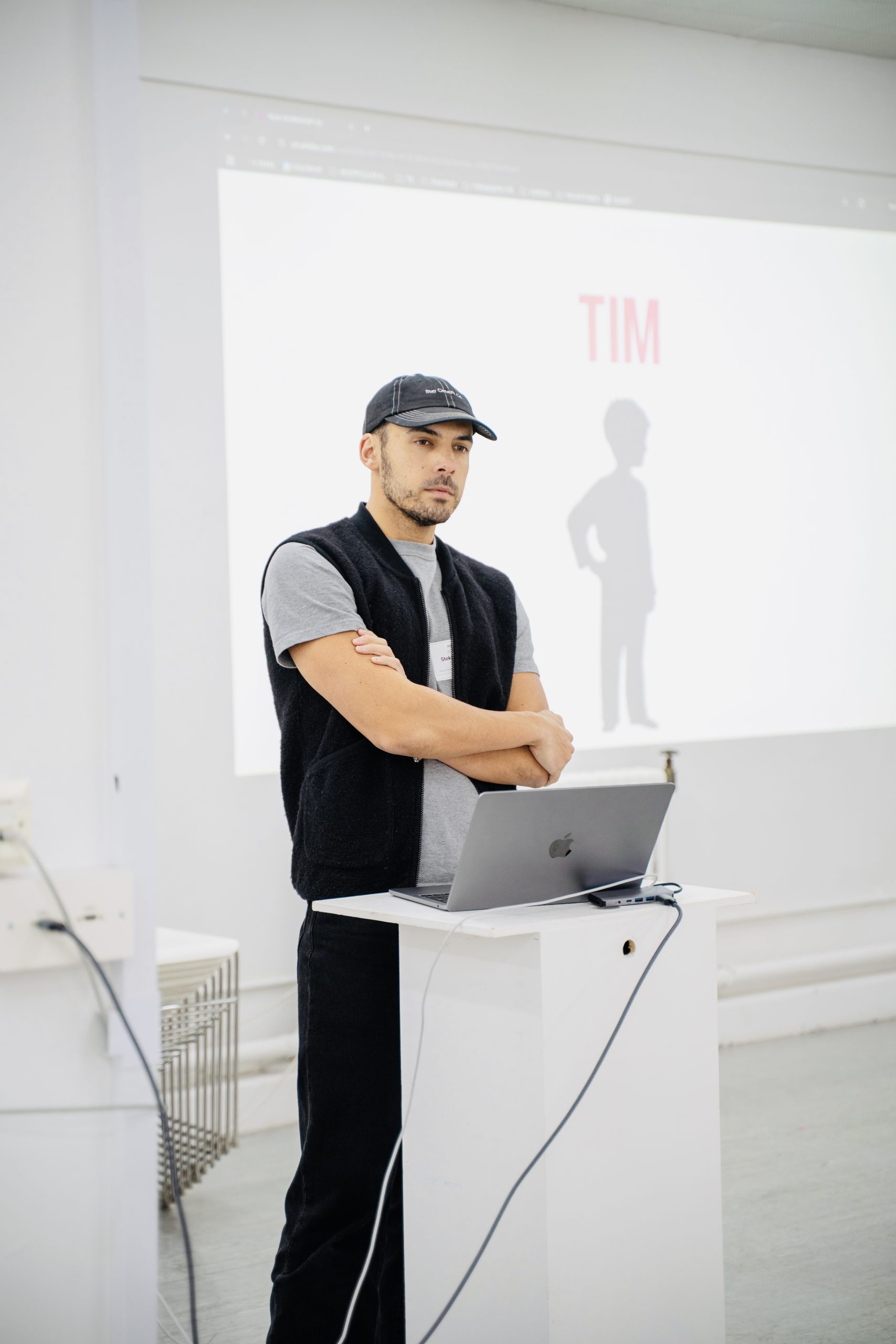 Course •
Course •Inside Interchange Week with Stokely Howard of Trendy Grandad
Stokely Howard, Co-Founder and Creative Director of video production company Trendy Grandad, shares his reflections on Norwich’s cross-course collaboration week. -
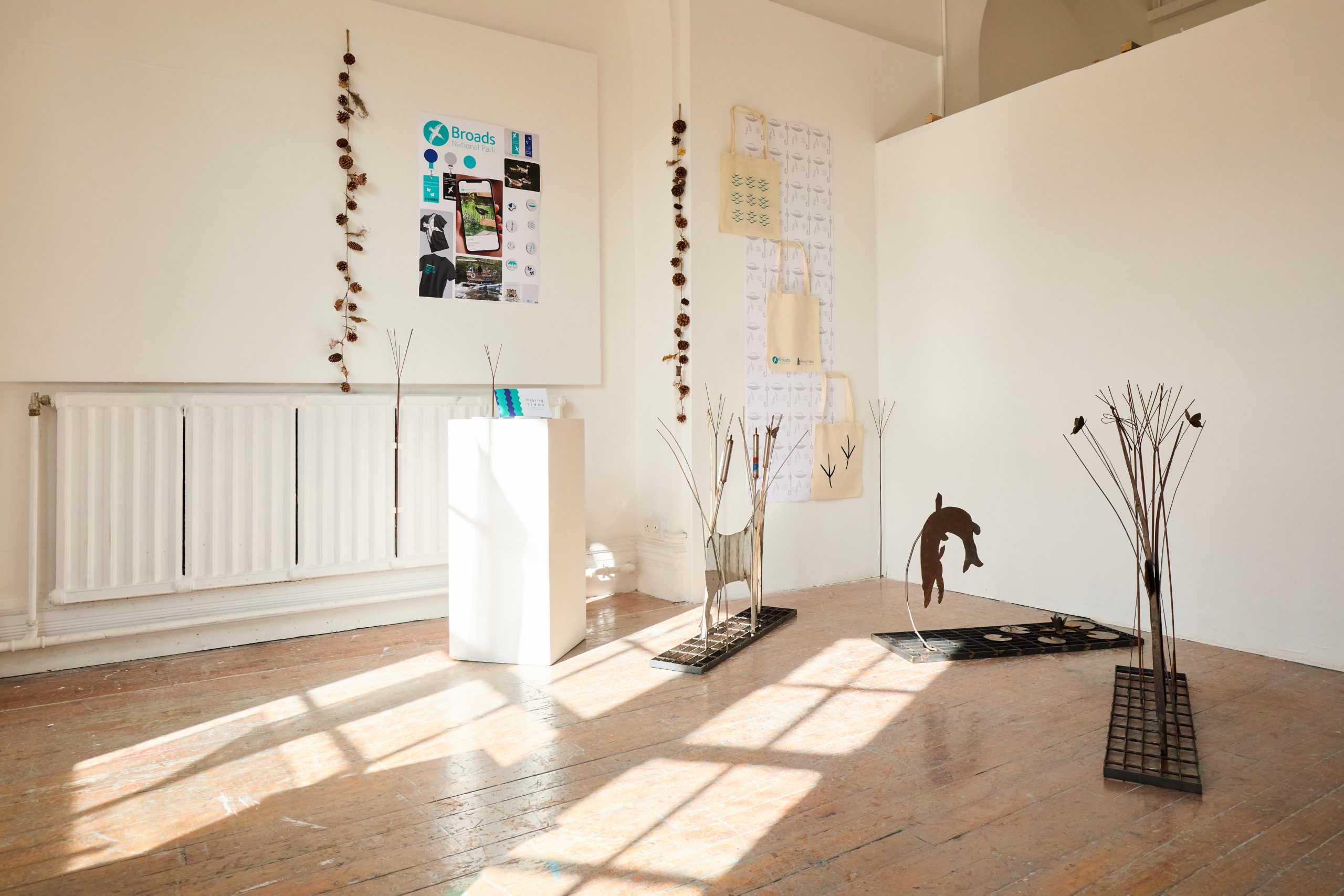 MA Communication Design •
MA Communication Design •Norwich announces Sustainability Award winners at Postgrad Festival 2025
Norwich University of the Arts' Sustainability Awards celebrate students’ commitment to sustainable and ethical practice. -
 Research •
Research •Shape Shift Converse Rework: Authentic co-creation of art in mental health settings
Exploring the story, impact and legacy of the Rivers Centre Project at Hellesdon Hospital.
Related courses
Discover our courses and take the first step towards unleashing your potential
-
Visit the Games Art and Design BA (Hons) course page

- Filter courses by study level: Undergraduate
- Filter courses by duration: Full time
- Filter courses by start month: September
- Filter courses by subject: Games Art and Design
Games Art and Design BA (Hons)
Explore and develop your skills of current game studio pipelines and be part of a collaborative, supportive department.
-
Visit the Marketing BA (Hons) course page
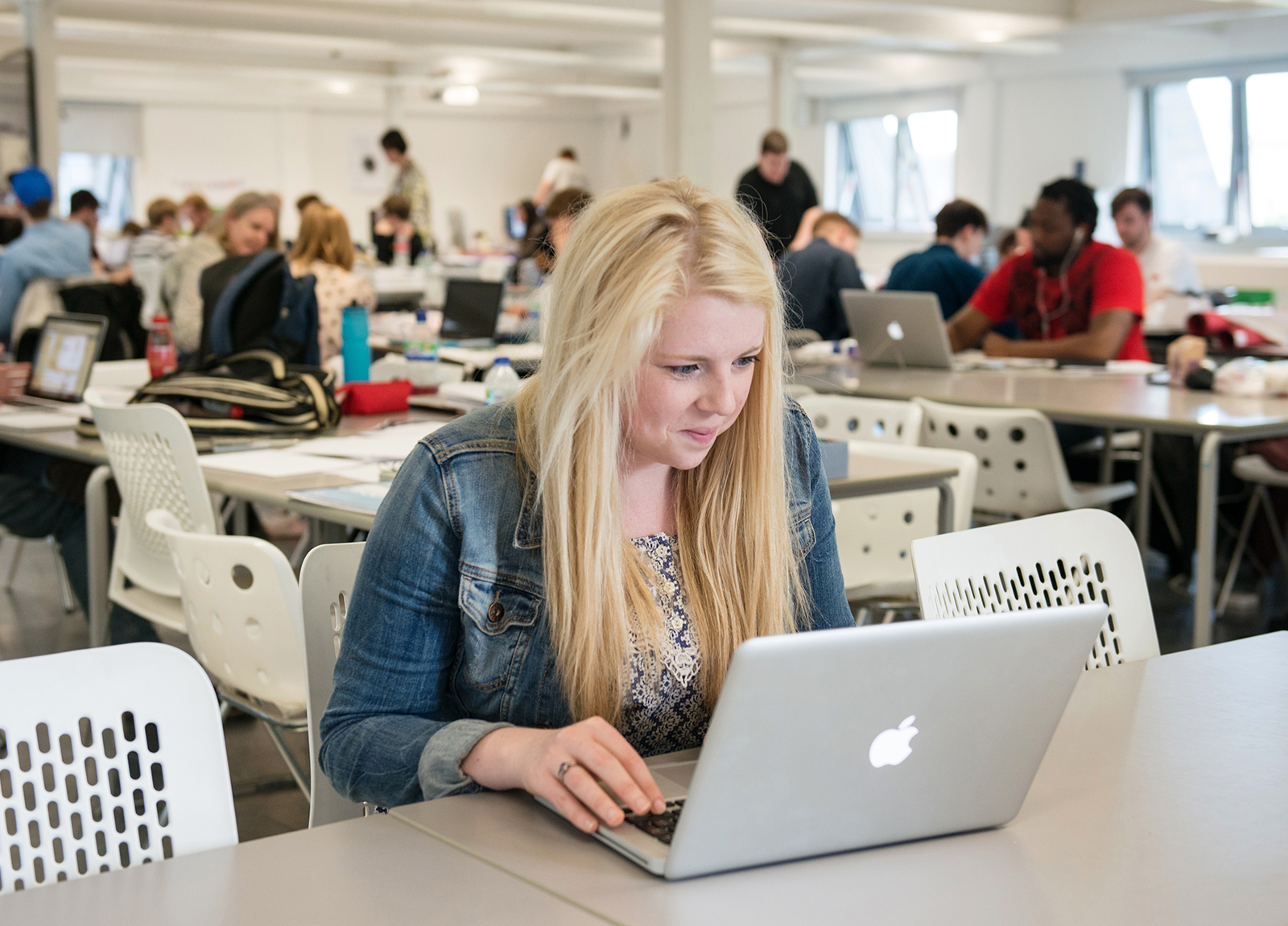
- Filter courses by study level: Undergraduate
- Filter courses by duration: Full time
- Filter courses by start month: September
- Filter courses by subject: Marketing
Marketing BA (Hons)
Master multi-channel marketing strategies and campaigns and take your career to the next level with our BA (Hons) Marketing course.